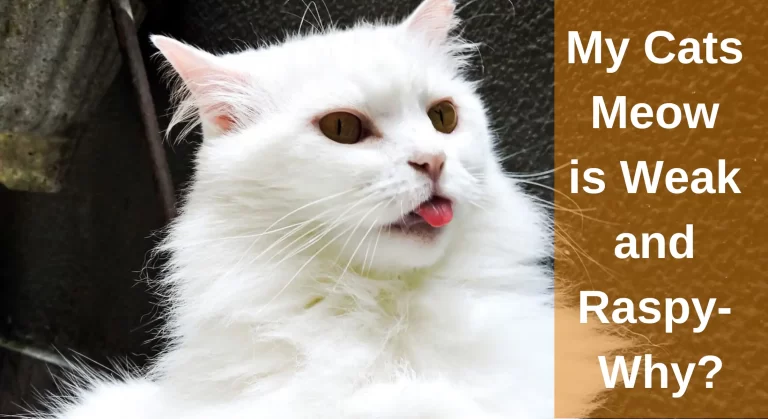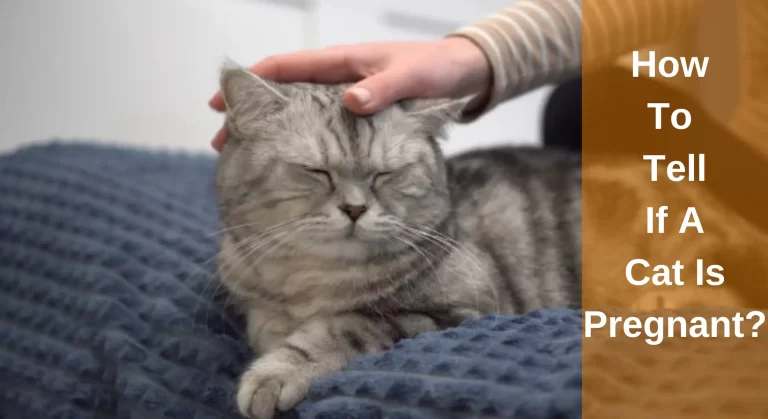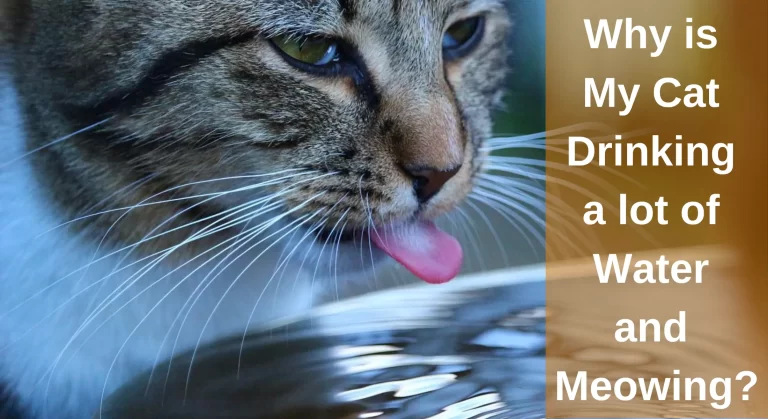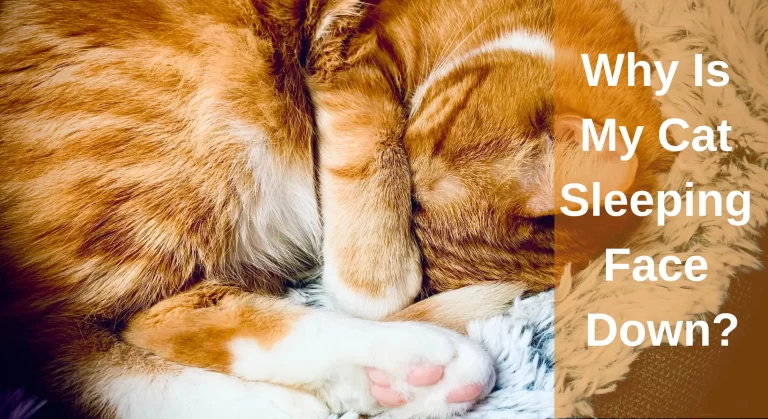Why My Cat is Hiding And Acting Weird – What to Do?
As cat owners, we love our feline friends and often feel that they are part of our family. However, cats can sometimes exhibit strange behavior, leaving us concerned and confused. One of the most common behaviors is when our cats suddenly start hiding and acting weird.
Cats may hide and act weird for various reasons, including illness, stress, anxiety, territorial issues, and boredom. Whenever something or someone nearby causes them concern, cats will hide. There may be something unfamiliar that they are scared of or just wary about, and they might want to stay out of the way.
In this article, we will explore some of the reasons “why my cat is hiding and acting weird”, and what you can do to help them.
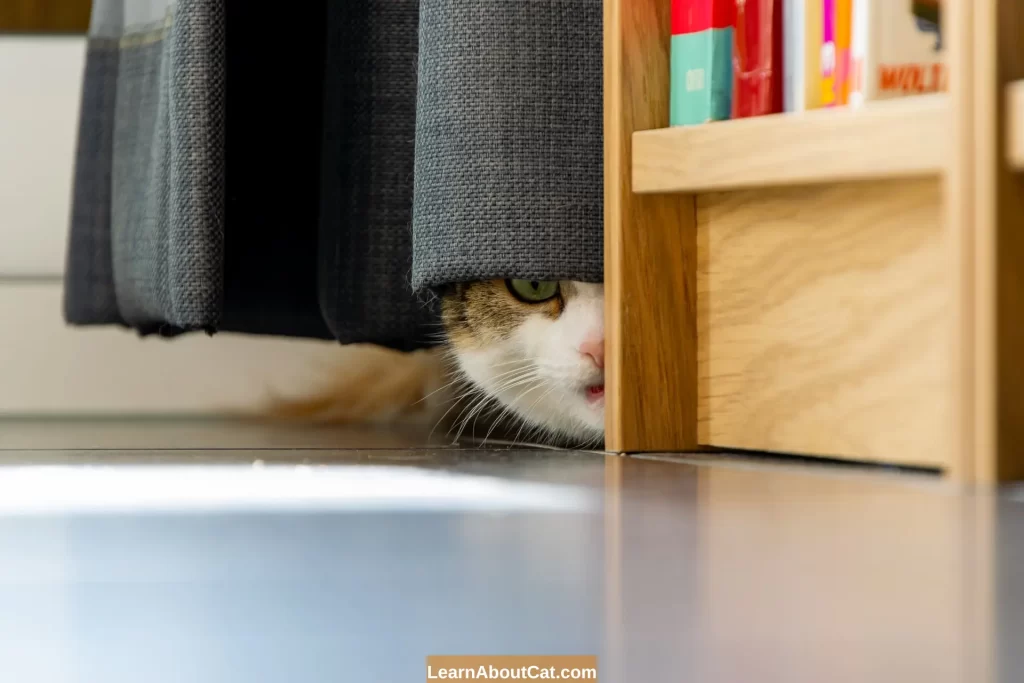
Understanding Cat Behavior
Before we delve into the reasons why cats hide and act strange, it’s essential to understand cat behavior. Cats are naturally solitary animals and have a strong instinct to hide when they feel threatened or scared. This instinct is based on their survival in the wild, where hiding is a way to avoid predators and danger.
Moreover, cats have unique personalities, and their behavior can vary based on their mood, environment, and past experiences. Therefore, paying attention to your cat’s behavior and understanding what they are trying to tell you is essential.
Reasons Why Is My Cat Acting Strange and Hiding?
There are various reasons why cats may suddenly start hiding and acting weird. Some of the most common reasons are:

1. Depression
A melancholic cat can be acting strangely. You didn’t leave your bed all day, you didn’t get dressed, and you only had food when your mother called and said she would be there if you didn’t have some right immediately.
For instance, a cat that has lost a beloved partner could act in a similar manner. As his food lay untouched for days, he disregarded even prizes. He hides under the bed. Because there is no advantage to grooming, he has little interest in doing it.
How to assist: Use toys and treats to lure him out of hiding while using comforting language. Try the Tellington TTouch technique, sometimes referred to as TTouch, which comprises giving him a familiar blanket or article of clothing and rubbing him to comfort him.
2. Territorial Issues – By the Introduction of a New Cat
The new cat you just took home is the one your older cat wants to die. They shout as they sprint across the room before coming to an abrupt, frenzied halt.
Because they eliminate outside of the litter box, you are frightened to leave them alone together.
How to help: Provide cat trees and shelves as escape routes and ensure that every cat has a secure spot to eat and use the litter box. Playing with the cats simultaneously can aid in deflecting their innate animosity against one another.
Also, Check Out: How To Introduce Cats?
3. She is Terrified
She despises change more than the most neurotic person you know and has been in full-blown fight-or-flight mode ever since you relocated.
Your new apartment has brand-new furnishings, but the room is smaller. She spends much of the day alone because you just started working full-time.
How to help: To prevent disturbing your cat’s routine, put her in a different room with her toys, litter box, food, and space to live while you pack and relocate. Keep her in a safe place while you unpack and decorate your new house. If familiar objects and smells surround her, she will feel more at home.
4. Your Cat is Unwell
Cats are masters at hiding their pain, and they may start hiding and acting weird if they are suffering from an illness or injury.
Watch your cat for signs of illness if they are hiding and behaving strangely. Here are some signs that your cat may be sick:
- Lack of appetite: If your cat is not eating or drinking, this may be a sign that they are feeling unwell.
- Lethargy: If your cat is not as active as usual or seems to be sleeping more than usual, this may be a sign of illness.
- Changes in behavior: If your cat is acting differently than usual, hides for more than a day, or exhibits a rapid change in mood, this may be a sign that something is wrong.
- Unusual vocalization: If your cat is meowing more than usual or making unusual noises, this may be a sign of illness.
- Vomit: When your cat vomits on a regular basis, it may be worrying.
- Not using the litter box: Your cat may be attempting to let you know anything is wrong if stops using the litter box,
How to help: While the likelihood that it’s nothing severe is high, a cat displaying unusual behavior and exhibiting these symptoms should be examined by a veterinarian to rule out any significant medical issues.
5. Age-Related Changes
As cats age, they may start to hide and act weird due to cognitive decline or physical limitations. They may become less active or vocal and may even start to forget where things are located in the home.
How to help: If your cat is hiding and acting weird, it’s important to consider whether they may be experiencing age-related changes
6. Boredom or Lack of Stimulation
Cats are active animals and need plenty of mental and physical stimulation to stay happy and healthy. If your cat is hiding and acting weird, it could be a sign that they are bored or lacks stimulation.
How to help: Try to provide them with interactive toys, scratching posts, and a safe outdoor area to explore.
7. Tense Cat
Even minor environmental changes may negatively impact a cat’s temperament. Excessive noise, car trips, seasonal changes, and the addition of a person or animal to the family unit can all cause your cat to become more stressed.
Curing your worried cat: You may provide a stress-free atmosphere for your feline companion. By providing your cat with high-quality food, hiding places, and scratching posts, you may be able to reduce their stress levels.
8. Perhaps she/he may Not Like You
A possibility is that you are not the favourite person of your feline. When you try to pet him, he bites or attacks you and runs under the coffee table. Shortly after, he returns and violently headbutts your partner in your presence.
How to help: Recognize that a strangely acting cat occasionally cannot like you. Since each cat has a unique personality, you won’t get along with every cat. We have favourites despite being instructed not to; thus, they remind me of children.
Why is My Cat Staying Hidden?
Let’s start by talking about the causes of why cats who have always concealed do so. They do it because they find it to be pleasant; to them, finding a cosy spot is like cuddling up in a king-sized bed’s worth of cushions.
Some domestic cats prefer to have nocturnal lifestyles, roaming around the house at night while unwinding and recharging alone during the day. The following list of possible effects should be known to you.

1. Stress or Anxiety
Perhaps you had a visitor who smelled like a vicious dog, or perhaps you binge-watched strange things over the weekend with the volume a little too loud.
Hiding is a common reaction since cats physically try to hide from danger when they are anxious, and it will probably stop once your cat starts to relax. It’s time to see the vet if stress-hiding lasts longer than usual.
2. Ailment or Pain
Because cats don’t show their feelings, they hide when they are unwell. Cats who frequently engage in play but then quickly withdraw into hiding may have a severe cold, an arthritic flare-up, or a more serious ailment like a chronic illness.
3. Fleas
If your cat has fleas, she may be hiding to try to avoid getting bitten. If you have a flea infestation, fleas will create nests all around the house, including behind furniture, in your cat’s bed, and in the rug.
4. Pregnancy
A few days before giving birth, pregnant cats usually create a cosy hiding area where they may give birth in quiet and secret.
Common indoor hiding places include under your bed, under your desk, or behind a running appliance.
Prevention of Hiding and Weird Behavior
Several things can be done to help your cat if it’s hiding and acting weird. Here are some suggestions.

1. Provide a Safe and Comfortable Environment
Cats need a safe and comfortable environment to feel secure and relaxed. Ensure they have access to their litter box, food, and water, and provide them with a cozy place to sleep.
2. Provide a Routine
Routines are important for cats, so it’s important to establish them early on. Providing them with playtime, feeding them at the same time every day, and putting them to bed at the same time every night can help achieve this.
3. Avoid Sudden Changes
Try to avoid sudden changes in your cat’s environment. If you need to make changes, do it gradually so your cat gets used to them.
4. Identify and Remove Sources of Stress
If your cat is stressed or anxious, try to identify the source of their stress and remove it if possible. For example, if loud noises are causing your cat to hide, try to minimize the noise level in your home.
5. Spend Time with Your Cat
A cat’s happiness depends on the attention and affection it receives from its owner. Spend as much time as you can with your cat, play with them, and give them a lot of love.
6. Provide Mental and Physical Stimulation
For a healthy and happy cat, it is essential that it is kept mentally and physically stimulated. Provide them with interactive toys, scratching posts, and a safe outdoor area to explore.
If you want to encourage your cat to play and explore, you may want to hide treats or toys around the house.
7. Visit the Vet
It’s imperative to take your cat to the vet if you suspect they are ill or in pain. The vet can diagnose any underlying health issues and provide the necessary treatment.
How Do I Relax a Stressed Cat?
If you see multiple of these signs at once i.e., Overgrooming, Behavioral aggression, Sleeping problems, and Change in appetite, you may almost be certain that your cat is stressed. Fortunately, there is minimal cause for alarm regarding general stress.
Once they have calmed down or the stressor responsible has been removed from their environment, your cat will rapidly return to being gregarious and sociable.
However, chronic stress is a problem that has to be handled. If your cat is acting suspiciously and fearfully and the indications of stress don’t seem to be disappearing, schedule a visit with your veterinarian. This behaviour in your cat might indicate chronic pain or an underlying illness.

Set up Your Surroundings
- Use their basket or a few boxes to give your cat safe hiding places they may go to in stressful situations. Since it will be darker and cosier up there, your cat will probably prefer that spot since they feel safer there.
- Give them the freedom to interact with you as they see fit. If you see any of the aforementioned body language indicators in your cat, take their cues and avoid stroking or playing with them since cats want to feel in charge of their environment.
- Installing a cat flap may also be a great way to ensure that your cat feels more in charge because it will allow your cat to enter and depart as needed.
- If your cat’s anxious behaviour persists even after you’ve talked to your veterinarian about it, think about asking them to suggest you to a qualified animal behaviourist who can help you come up with solutions.
- Since your cat will be able to enter and exit as needed, installing a cat flap may also be a terrific method to guarantee that your cat feels more in charge.
- Consider asking your veterinarian to recommend you to a trained animal behaviourist who will be able to assist you in coming up with solutions if your cat’s worried behaviour continues even when they are not in stressful settings.
Check Out: Do Calming Collars Work For Cats?
Frequently Asked Questions
When should I be concerned about a cat hiding?
A cat who hides excessively interferes with the everyday activities he or she needs to perform, such as eating, drinking, urinating, and defecating.
You may want to take your cat to the veterinarian if she has not left her hiding spot to eat for a day.
How long do cats hide when sick?
If your pet has only a mild illness or injury, it may come out of hiding within a day or two. We recommend scheduling an appointment with our office if your furry friend hasn’t emerged after two days.
Final Thoughts!
Cats that are hiding and acting strange may have an illness, so It’s important to keep an eye out. As a cat owner, it’s essential to understand your cat’s behavior and provide them with a safe and comfortable environment.
Spending quality time with your cat, identifying and removing sources of stress, visiting the vet, and providing mental and physical stimulation can help your cat overcome their hiding and strange behavior.
Related Posts:
Who is Isabella?
My name is Isabella, and I am a dedicated and knowledgeable cat enthusiast. With years of experience caring for cats and a deep love for felines, I made a mission to help other cat lovers navigate the challenges of cat ownership.

